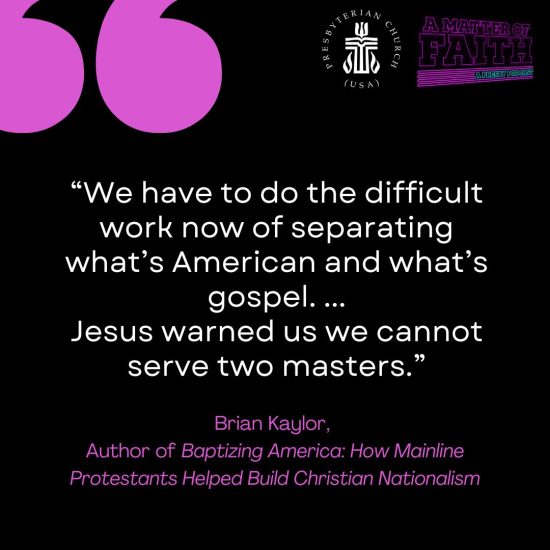NEW BRUNSWICK, N.J. (ABP)—Churches that do a good job of including members with special needs like autism often reap side benefits of a positive witness to their community and sometimes even numerical growth, says an expert in disability ministries.
“I’m beginning to hear more and more stories of congregations who are saying, ‘Out of our inclusive work with people with autism and their families, it’s changing us as well and for the better,’“ said Bill Gaventa, director of community and congregational supports at the Elizabeth M. Boggs Center on Developmental Disabilities in New Brunswick, N.J.
“Spiritually,” he explained, “but also people are talking about that in terms of numbers and church growth, because of people who have felt welcome and are coming and the word has gotten out that this is a welcoming place and congregation.”
Special-needs ministry is a two-way street, he stressed.
“Part of this is about helping people and children with autism to learn how to be members of different faith communities, but it’s also about helping that whole faith community to realize what it means for anybody to be a member of that community,” he said. “It’s a dual process of helping somebody to learn the culture but also helping a community to look at its own culture.”
Special-needs ministry is not just to the child or adult with disabilities, Gaventa said. It also reaches the wider family and broader network of caregivers and others whose lives intersect with the individual and family.
“If you ask families to tell you their church stories, in my experience, you never get anything that’s lukewarm,” he said. “Positive stories, families will tell to others, to their relatives, to their extended family, to their caregivers, to therapists, school teachers about how important their faith community has been. And the same thing with the negative stories; when a congregation somehow shuts its door or something that is hurtful happens, that kind of stuff gets out quickly among networks these days, often with the speed of light, it seems like.”
Responding to a member with special needs is “where a faith community has to decide what kind of witness it wants to provide out to the wider community,” Gaventa said.
Ministry in congregations often begins with people being afraid and not knowing what to do with someone with a disability, he said. From there, it moves to some form of ministry to or for special people. As church members get to know those families and individuals, they will say: “Don’t do anything special for us. Just include us. You may have to do some special things to help that happen, but just include us. That’s the gift that we most need.”
Gaventa urges churches to think holistically about ministry with people with special needs. Rather than viewing it as a religious-education or a worship issue, he advises making as many opportunities as possible for inclusion and connection within the congregation.
“See the whole congregation and its activities as a resource,” he said. “Just because somebody may not be able to participate in one particular thing very well doesn’t mean that they couldn’t participate somewhere else.”
Entry points may need to be “customized” in different ways, he added. Gaventa recommends starting not with a whole program, but by focusing on one person at a time. Opportunities might include children’s or adult education or including special-needs individuals in membership rituals like communion.
“The question is not whether to get caught up in what is the doctrinal or absolutely politically correct approach, but work with what’s needed and the gifts you have and the strengths you have,” he said. “It’s not a question of one or the other. It’s a question of both/and and making as many opportunities for inclusion and connection as possible within the congregation.”
Gaventa warned, however, that there are pitfalls to be avoided.
Parents often feel at fault if something happens to one of their children, he noted. Everyone deals with biblical interpretations about whether they did something wrong to cause something to be wrong with their child and theological questions such as “Where is God?” and “What is the source of my faith?”
The last thing they need, he said, is to explicitly or implicitly hear messages so often experienced by people with disabilities and their families: “What did you do to cause this?” and “If your faith was stronger, it could be cured or fixed.’
“Both of those, I think, we need to name them for what they are, and some people call that a kind of spiritual abuse,” Gaventa said. “We wouldn’t want people to say that to us about things that happen to us, and it’s really just other people’s attempts to find answers to questions that are not easily answered.
“But when you walk in that door that sense of welcome and inclusion is there, a sense that ‘You’re part of our faith family; we’ll figure it out with you as we go along; you’re welcome,’ that’s a huge gift for families and for people.”



